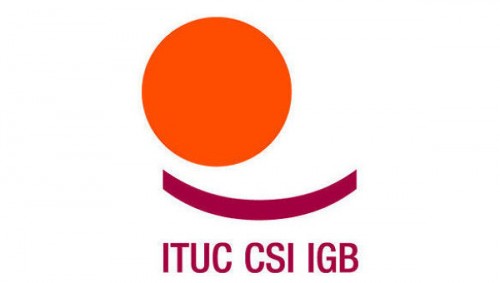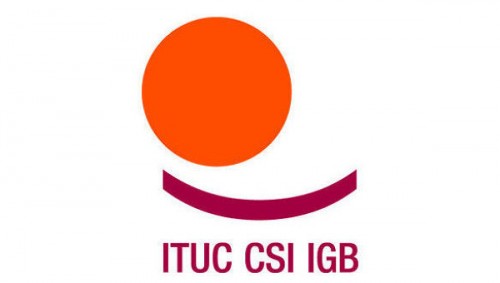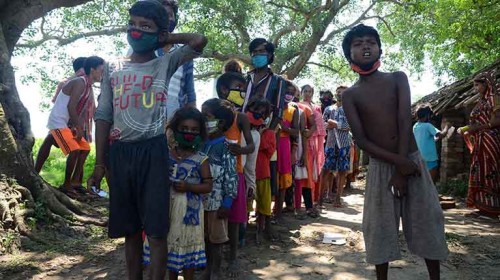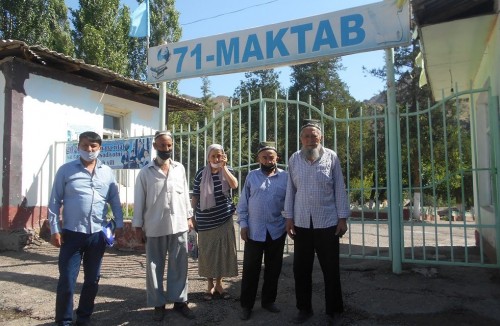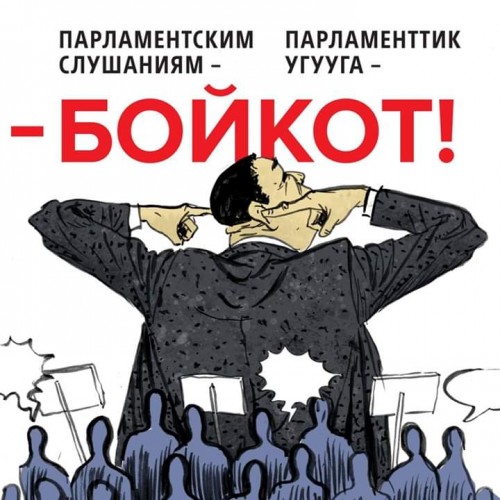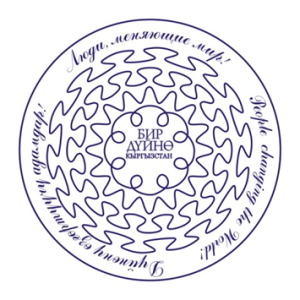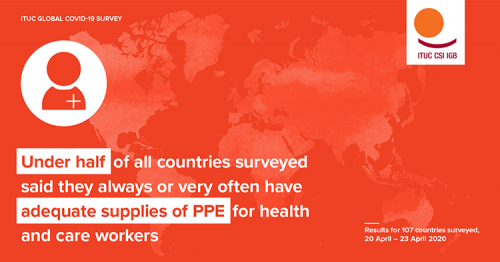Countries
Solidarity campaigns
13 August 2024
Georgia: Support striking workers at Evolution Gaming
5 June 2023
Georgia: Justice for Wolt couriers
10 May 2023
Belarus: Trade union activity is not extremism!
2 November 2019
Kazakhstan: Trade unionist Erlan Baltabay imprisoned - again!
19 November 2018
Kazakhstan: Stop repression and physical attacks on leaders of independent unions; hands off Larisa Kharkova, Erlan Baltabai and Dmitriy Senyavskiy
18 April 2018
MALOKHAT STILL NEEDS YOUR HELP
News
18 June, 2020 / kyrgyzstan
Interference in trade union affairs and harassment of trade union leaders
Mr President, trade unions, under virtue of ILO Convention 87, ratified by your country in 1992, organise their activities and make their own decisions in line with their internal rules and procedures, free from any interference from state bodies or any other parties. Regretfully, that is not guaranteed in Kyrgyzstan today.We urge you, as the guarantor of the Constitutional rights of the citizens of Kyrgyzstan, including the right to freedom of association, to act to ensure that the interference in internal trade union affairs by law enforcement agencies and the prosecution and harassment of individual trade union members and leaders will end, as a matter of urgency. We shall inform the ILO and the EU about these violations of trade union rights in the country and will be ready to support a formal complaint of the FPKg and its unions to the ILO as well as engage other available international mechanisms to ensure that freedom of association is respected in the country, in law and in practice.
16 June, 2020 / International
SEE-NIS PERC OHS Network’s statement: COVID 19 and Occupational Health and Safety
COVID-19 is threatening the health and the livelihoods of workers globally. COVID-19 will also have major economic and employment impacts. Millions of companies worldwide are in danger of being forced out of business with grave impacts on employment. It will push on liberalisation of workplace legislation and workers’ rights.
15 June, 2020 / International
COVID-19 may push millions more children into child labour – ILO and UNICEF
Child labour down by 94 million since 2000, a gain now under threat.
12 June, 2020 / uzbekistan
HUMAN RIGHTS ACTIVISTS ISOLATED FOR 14 DAYS AFTER MONITORING COTTON FIELDS
Tashkent human rights activists Elena Urlaeva and Solmaz Akhmedova, and activists Karimjon Madazimov and Bekzod Norboev, who live in the Pop district of Namangan region, have been placed under a 14-day compulsory quarantine in their homes since June 8 on suspicion of having Coronavirus. They were given an administrative warning and, in the event of violating quarantine, risk criminal prosecution for failure to observe compulsory isolation.
01 June, 2020 / International
For the International Day for Protection of Children, a newsletter on children’s rights was issued.
Within a new phase of the #CrossBorderChildhood campaign ADC Memorial publishes the minimal standards for interstate agreements on return of children based on contemporary norms of child’s rights, recommendations of CRC, Council of Europe, and IOM. Also in the issue: “Children of St. Petersburg” continues to help migrant children in quarantine; the announcement of the report of the The Conflict Analysis and Prevention Centre (CAPC) “A confident step towards the future?” on the problem of adaptation of children traumatized by war, violence, the loss of loved ones and radical religious practices; bacha bazi as a form of child sexual exploitation in Afghanistan and Pakistan.
27 May, 2020 / kyrgyzstan
PRESS RELEASE. “ON JUNE 1ST 2020, AT 10 A.M., A COURT SESSION ON THE LAWSUIT OF AZIMZHAN ASKAROV AGAINST THE GOVERNMENT OF THE KYRGYZ REPUBLIC”.
On 1 June 2020, at 10 a.m., a preliminary hearing will be held in the administrative court of Bishkek (64 Ibraimova St., tel: 0312 681390, 622731) to consider the administrative claim of Azimzhan Askarov against the Government of the Kyrgyz Republic. On 11 May 2020, the trial did not take place due to the reorganization of the Inter-district courts in accordance with the Law of the Kyrgyz Republic dated 11 April 2020 “On Amending Certain Legislative Acts of the Kyrgyz Republic”.
26 May, 2020 / kyrgyzstan
STOP DISCRIMINATION AND NARROWING THE SPACE FOR NGOS IN KYRGYZSTAN!
Parliamentary hearings were scheduled to be conducted on 22 May 2020, at 10 a.m. Only 60 NGOs were selectively invited to the hearings. Most of them were CSOs (GONGOs (government-organized non-governmental organizations)), cooperating with politicians and sharing the opinion that only those NGOs should be controlled by the state, which supposedly destroy traditional values and threaten the development of the country. Active NGO sector leaders, human rights experts, experts on the freedom of association, as well as leaders of regional NGOs that work extensively with local communities were not on the list of those invited to the parliamentary hearings (or were deleted from it).
20 May, 2020 / kyrgyzstan
The Human Rights Movement “Bir Duino-Kyrgyzstan” together with the solidarity network calls on deputies of the Jogorku Kenesh of the Kyrgyz Republic to withdraw the draft law of the Kyrgyz Republic “On Amending Some Legislative Acts of the Kyrgyz Republic
The Human Rights Movement: Bir Duino-Kyrgyzstan and partners of the solidarity network call on the deputies of the Jogorku Kenesh to withdraw the draft law of the Kyrgyz Republic «On Introducing Amendments to Some Legislative Acts of the Kyrgyz Republic (the Laws of the Kyrgyz Republic on non-commercial organizations and on state registration of legal entities, branches (representative offices))» initiated by the Jogorku Kenesh Committee on Social Issues, Education, Science, Culture and Health.
18 May, 2020 / International
LGBTI+ IN THE REGION OF CENTRAL ASIA: REPRESSION, DISCRIMINATION, EXCLUSION
The main condition in compliance with Human Rights principles should be non-discriminatory realisation of all the rights of each person. Many members of the community view law enforcement officers as the main threat to their personal safety, life, and health. LGBTI+ people frequently become repeat victims of violence, threats, extortion, and blackmail and are under constant pressure from police officers, who threaten to out them. Operational activities, which are periodically conducted in most countries in the region, keep LGBTI+ people in a state of ongoing stress and fear. The creation of special lists violates the rights of LGBTI+ people and makes them an easy target for persecution and humiliation.
14 May, 2020 / International

